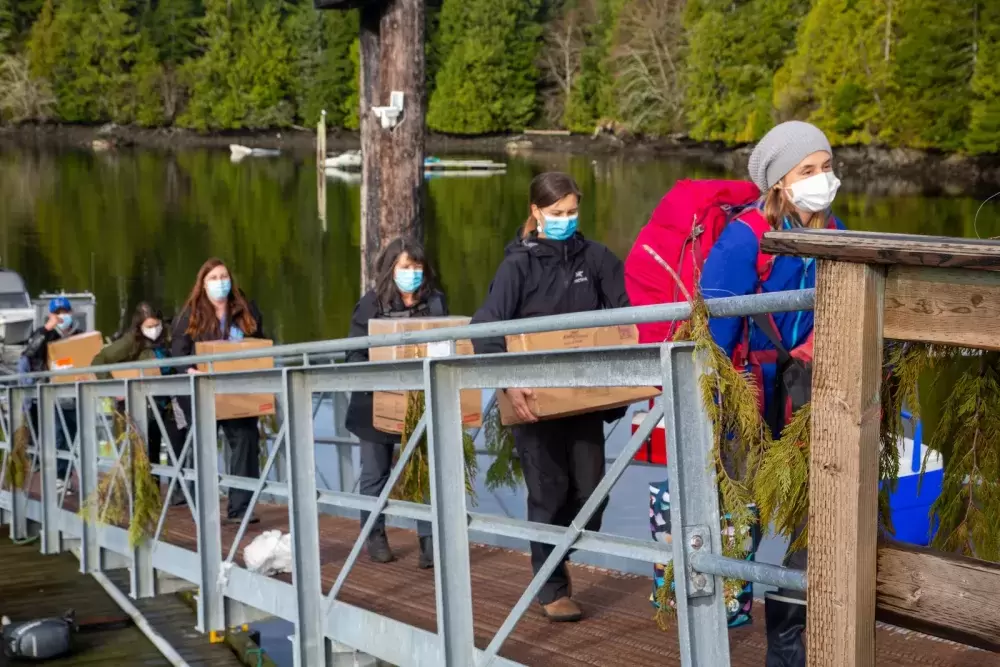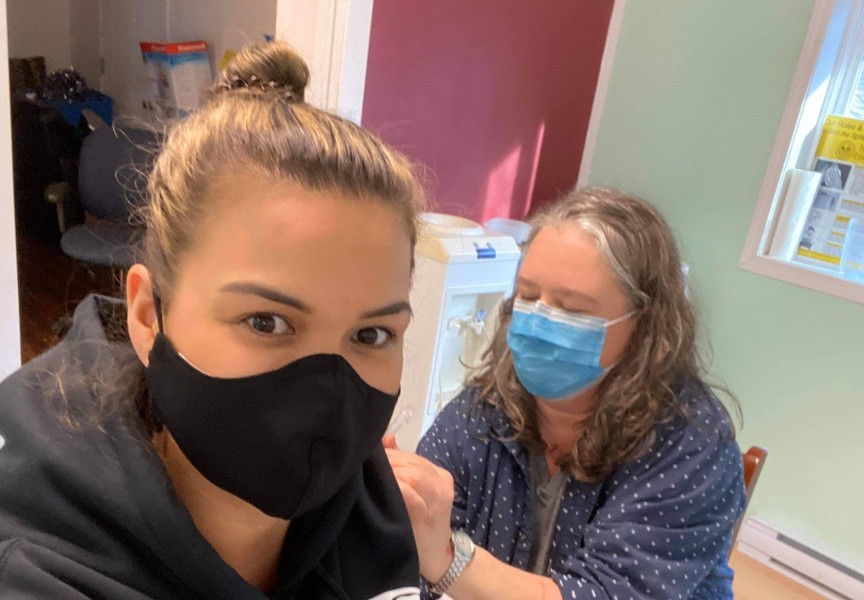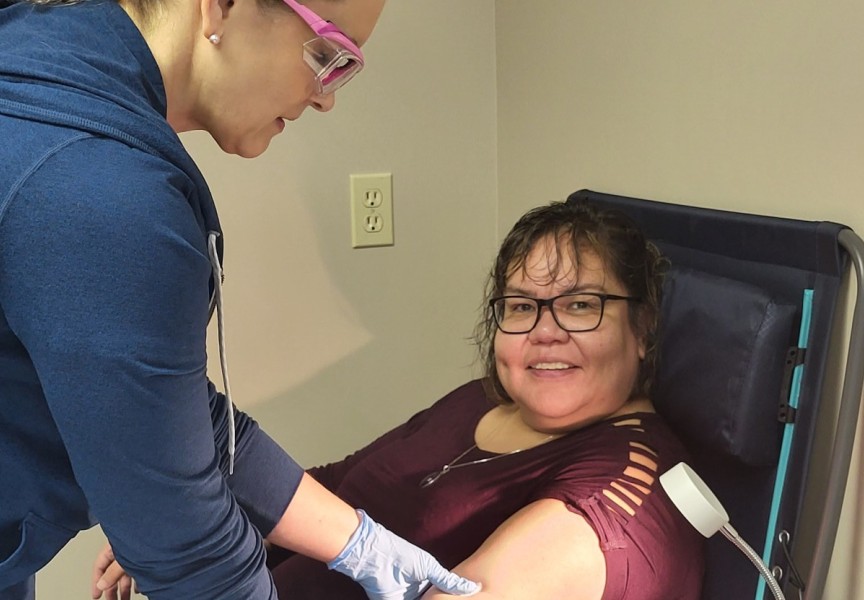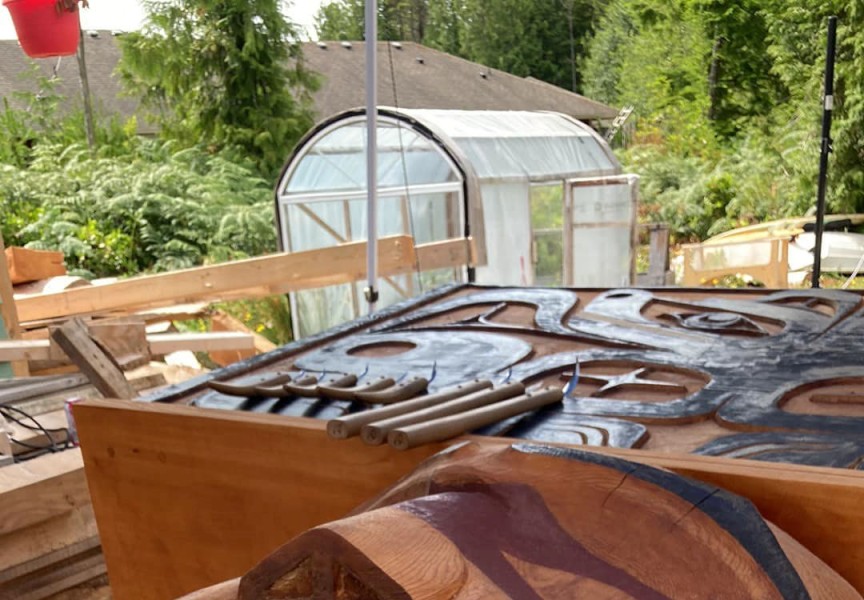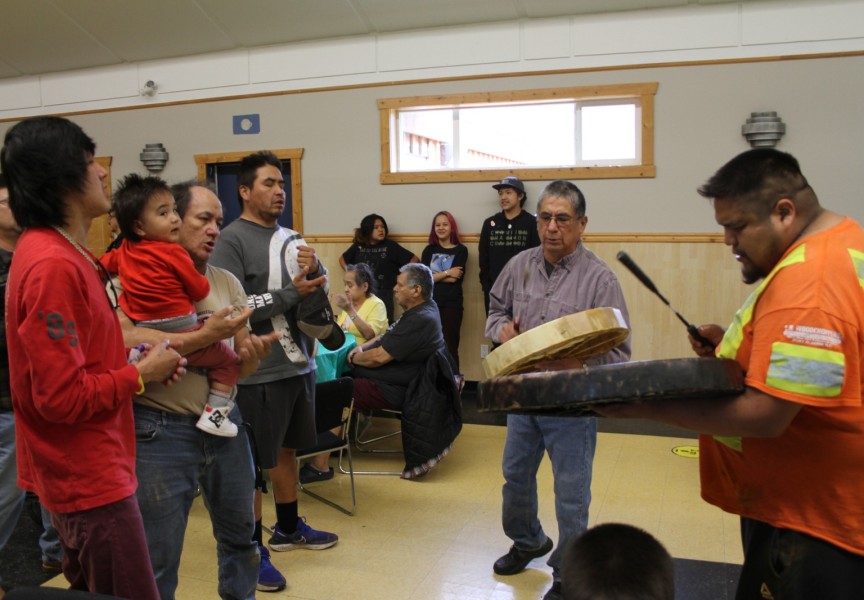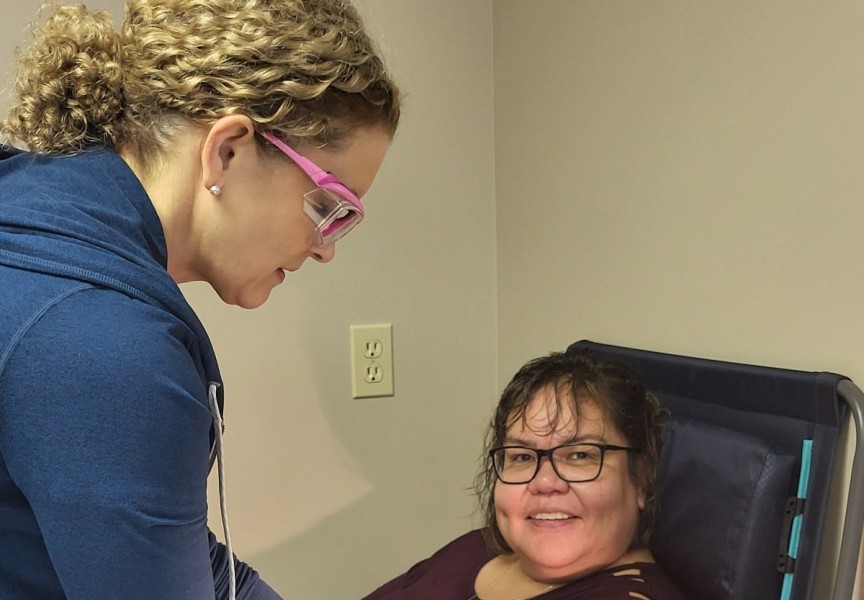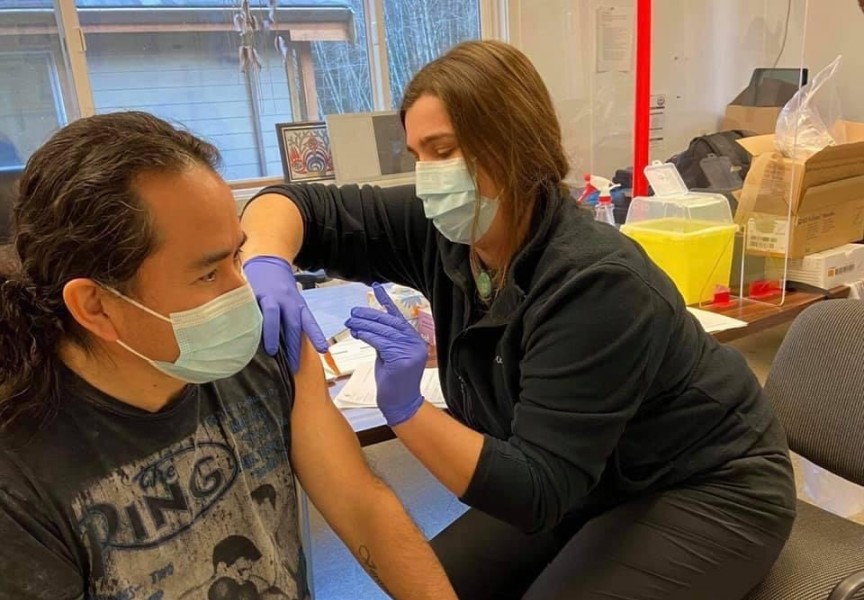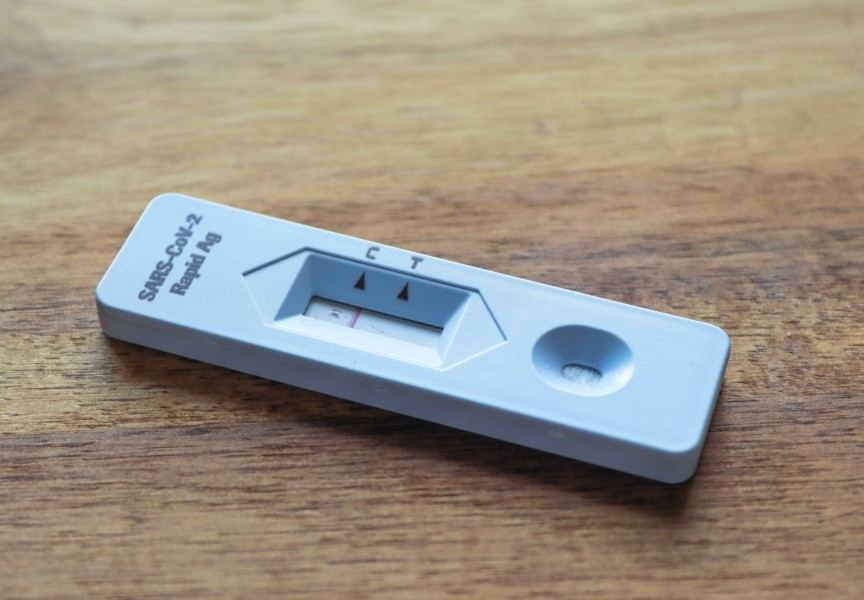Residents from six Nuu-chah-nulth nations are among the first to receive the Moderna vaccine within British Columbia.
The communities of Ka:'yu:'k't'h'/Che:k:tles7et'h' First Nations, Huu-ay-aht First Nations, Ehattesaht First Nation, Mowachaht/Muchalaht First Nation, Nuuchatlaht First Nation and Ahousaht First Nation were prioritized due to their remote locations and limited access to health care.
Ahousaht Chief Councillor Greg Louie said he was “overwhelmed” when the First Nations Health Authority informed him that Ahousaht was selected to receive the vaccine.
“There’s [over] 6 billion people in this world and we were chosen,” he said. “I think that says a lot about who Ahousaht is.”
Huu-ay-aht Chief Councillor Robert Dennis was among the first within his community to receive the vaccine on Jan. 4. It was a responsibility he said he feels “comfortable” with.
“We want to lead by example,” he said. “If there’s something that we can do to stop the spread [of COVID-19], we’re willing to be front and centre to ensure that it gets done.”
The vaccine was made available to all 123 Huu-ay-aht members living in Anacla aged 18 years and older, excluding women who are pregnant, nursing or breastfeeding, said Coral Johnson, Huu-ay-aht director of community services.
According to the nation, 70 community members were vaccinated. The only side effects residents experienced were sore arms. There are ten additional residents who are waiting to receive the vaccine, which the nation is working to address.
While there were a select few who were hesitant to receive the vaccine, Dennis said that the vast majority of Huu-ay-aht members were “willing and waiting.”
Throughout November and December, the community of Ehattesaht, near Zeballos, struggled to manage a COVID-19 outbreak. Of its 100 residents, 28 tested positive. The virus was eventually brought under control before the New Year when the last positive case passed the 10-day quarantine period.
“We were pretty lucky when you think about how much worse it could have been, thankfully our elders, and those with compromised health, stayed safe and it didn’t spread outside of our village,” said Ehattesaht Chief Councillor Simon John in a release. “Now, we have to head into a new phase and have our people vaccinated to prevent another outbreak because no one wants to go through [that] again.
Like Dennis, John stepped up to be among the first in his community to get the vaccination on Jan. 4. It was his attempt to calm resident’s nerves and “show everyone that it is safe.”
“For me this feels a bit historic,” he said. “As First Nations in remote communities, we have been asking to be first for a long time and I think this gives us some comfort. We are a long way from a hospital.”
Leading by example, Louie was also one of the first to receive the vaccine within his community. It was the Ahousaht chief’s way of showing residents his “commitment to providing safety and wellness.”
Over four days, roughly 400 members received the vaccine in the remote community of around 1,000 people.
Other than children and women who are pregnant or breastfeeding, there were some residents who opted not to receive the vaccine.
“I have to respect their decision,” said Louie.
After years of advocating for improved health services, Louie said he hopes awareness of the nation’s limited resources will become more of a provincial priority going forward.
Unlike the first Health Canada-approved COVID-19 vaccine by Pfizer-BioNTech, the Moderna doses do not require ultra-cold storage, making it easier to transport to remote communities.
To guard against the potential “sabotage” of immunization programs, the province is not releasing transportation details.
Community members in Yuquot received their first round of vaccines on Jan. 6.
“It’s a huge relief because it’s the only defense we have right now,” said Wanda Wilson, Mowachaht/Muchalaht First Nation administrator. “I am more excited than I am afraid.”
Combined with the nation’s continued efforts to wear masks and sanitize their hands, Wilson said “it’s almost like you can see a little bit of the light at the end of the tunnel.”
For Dennis, immunization means that his community will be one step closer to being able to gather again. He hopes that attending potlatches is in Huu-ay-aht’s near future.
“That’s one of the big things people are missing,” he said. “Being able to get together with family, share a good, big meal and [enjoy] songs and dances. I’m extremely excited about that happening again.”
In effort to develop herd immunity, Jeanette Watts, Nuu-chah-nulth Tribal Council (NTC) manager of nursing services, said it’s really important to get as many NTC members vaccinated as possible. While the vaccine will eventually be available to all of their membership, no one is being forced to receive it.
Once the more remote communities are immunized, Watts said the remaining Nuu-chah-nulth nations will “be right in line.”
Although the vaccines offer a defense against the virus, Louie said he expects members to continue to adhere to provincial health orders.
“Everybody needs to be vigilant,” he said. “We can’t let our guard down.”

